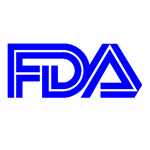USA Drug Categories
USA FDA Fetal Risk Categories
In the United States the government Food and Drug Administration (FDA) has established the following drug classification. See also Australian Drug Categories
Some Recent Findings
|
Category A
Controlled studies in women fail to demonstrate a risk to the fetus in the first trimester, there is no evidence of a risk in later trimesters, and the possibility of fetal harm appears remote.
Category B
Either animal reproduction studies have not demonstrated a fetal risk but there are no controlled studies in pregnant women, or animal reproduction studies have shown on adverse effect (other than a decrease in fertility) that was not confirmed in controlled studies in women in the first trimester (and there is no evidence of risk in later trimesters).
Category C
Either studies in animals have revealed adverse effects on the fetus (teratogenic or embryocidal or other) and there are no controlled studies in women, or studies in women and animals are not available. Drugs should be given only if the potential benefit justifies the potential risk to the fetus.
Category D
There is positive evidence of human fetal risk, but the benefits from use in pregnant women may be acceptable despite the risk (eg, if the drug is needed in a life-threatening situation or for a serious disease for which safer drugs cannot be used or are ineffective).
Category X
Studies in animals or human beings have demonstrated fetal abnormalities or there is evidence of fetal risk based on human experience or both, and the risk of use of the drug in pregnant women clearly outweighs any possible benefit. The drug is contraindicated in women who are or may become pregnant.
References
Search PubMed: US Drug Categories | Drug Categories | teratogenic drugs
External Links
External Links Notice - The dynamic nature of the internet may mean that some of these listed links may no longer function. If the link no longer works search the web with the link text or name. Links to any external commercial sites are provided for information purposes only and should never be considered an endorsement. UNSW Embryology is provided as an educational resource with no clinical information or commercial affiliation.
- U.S. Food and Drug Administration FDA
- TOXNET - Databases on toxicology, hazardous chemicals, environmental health, and toxic releases. mobile
Glossary Links
- Glossary: A | B | C | D | E | F | G | H | I | J | K | L | M | N | O | P | Q | R | S | T | U | V | W | X | Y | Z | Numbers | Symbols | Term Link
Cite this page: Hill, M.A. (2024, April 16) Embryology USA Drug Categories. Retrieved from https://embryology.med.unsw.edu.au/embryology/index.php/USA_Drug_Categories
- © Dr Mark Hill 2024, UNSW Embryology ISBN: 978 0 7334 2609 4 - UNSW CRICOS Provider Code No. 00098G
- ↑ <pubmed>23137407</pubmed>
